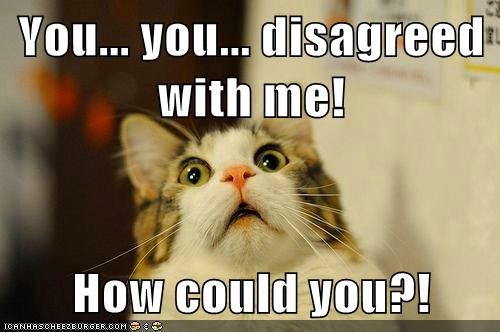The sympathy angle
Internet mobbing is spontaneous, as a rule, a mass outpouring of consternation and rage in response to incidents that catch their attention. These are a few well-known cases.
Karen Huff Klein, the bullied bus monitor
How can anyone forget poor Karen Huff Klein, the bus monitor from Greece, upstate New York, who was mercilessly taunted, then humiliated on video? What the Wikipedia article doesn't tell you is what happened to the kids involved. The internet pretty much turned on them and provided kind-hearted Karen with enough money to retire on.
Monica Gaudio's ripped-off recipe
Then there's the famous, "But honestly, Monica" scandal in which an online magazine editor, Judith Griggs, lifted an article by Monica Gaudio and published it without asking Gaudio first. Gaudio fumed about it on her blog and was considering her options but the story went viral, wiping Griggs's website out and making a meme of the incident and her attitude.
Jon Engle sics the internet on StockArt. It backfires
Needless to say, the apparent plight of graphic designer Jon who claimed he was being unfairly treated by StockArt, who had billed him for the artwork he had used without paying for it then tried to pass it off as his own, got everyone riled up at first. Then one by one people started asking questions about Jon's story, which just didn't add up. When the Internet Mob Of Great Justice realised they had been sicced on StockArt under false pretenses, they went after Jon instead. He has pretty much disappeared from the internet as a graphic designer.
What they had in common
Each of these three cases has a common angle: they were each portrayed as victims of cruel, heartless treatment by powerful actors who casually steamrolled over them with barely a backward glance. In all of the cases, people on the internet perceived that these people were being bullied and wanted to stand up for them, to protect them, and to wreak vengeance on the perpetrators. People who might ordinarily have little to do with each other found common cause and went boldly forth to do battle on behalf of people they had never encountered before. Sympathetic victims have a powerful emotional hook: we recognise ourselves in them and fear the same thing happening to us. That's why people get riled up.
Getting people on side
In every viral incident I've seen, people get other people on side either passively, not realising that they are the subject of outrage, or by actively seeking support. Where there is a bandwagon to jump on, people will jump on it but few of us want to be the first one to do so — or the only one. It seems to me that when someone is willing to go to bat for someone else, and has enough influence to persuade others to join in, that's when it kicks off. The payoff is from being part of a movement that saw justice done, in being part of something bigger than yourself, or from getting a free pass to put the boot right into someone without feeling guilty about it. Generally speaking, unless you are popular, have influence in a community, or can persuade people that yours is a worthy cause, you can kick and scream all you like but you won't get very far in terms of whipping up an internet firestorm.
So you're annoyed with someone on the internet
Been there, seen it, done it, got the blood-stained t-shirt. Have a rant, get it out of your system, then let it go. It's what I do. I'd advise against siccing the internet on people; it can and does backfire depending on how much of a lying, hypocritical douchebag people think you are. For whingeing, you might well be ignored unless you can garner enough support. For whingeing about me on Reddit, you are more likely to get a few people agreeing with you but not doing much beyond that; I don't go where I'm not wanted and generally keep my opinions on my own e-spaces.
The bottom line
Unless you can demonstrate that yours is a worthy cause, you're unlikely to get much support in terms of raising an internet army. So if you're butthurt over a comment made online that you don't like, get over it. No one has a right to be heard.



No comments:
Post a Comment